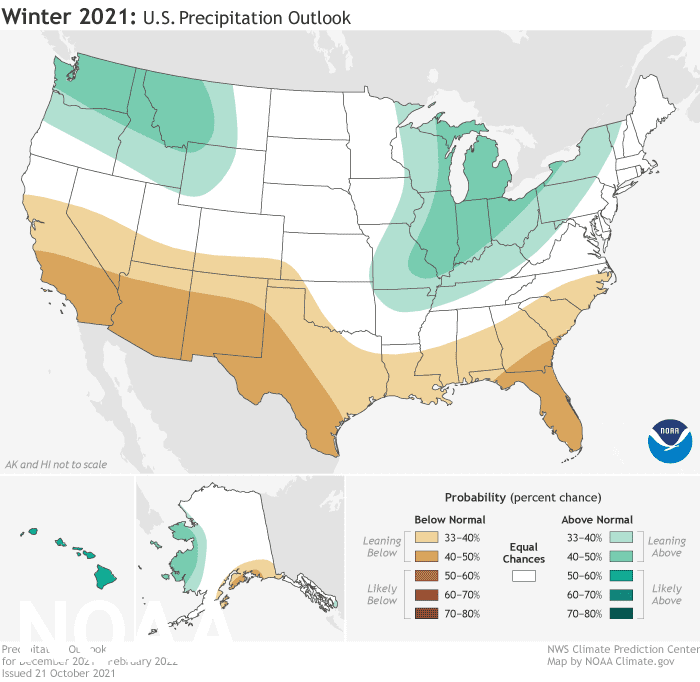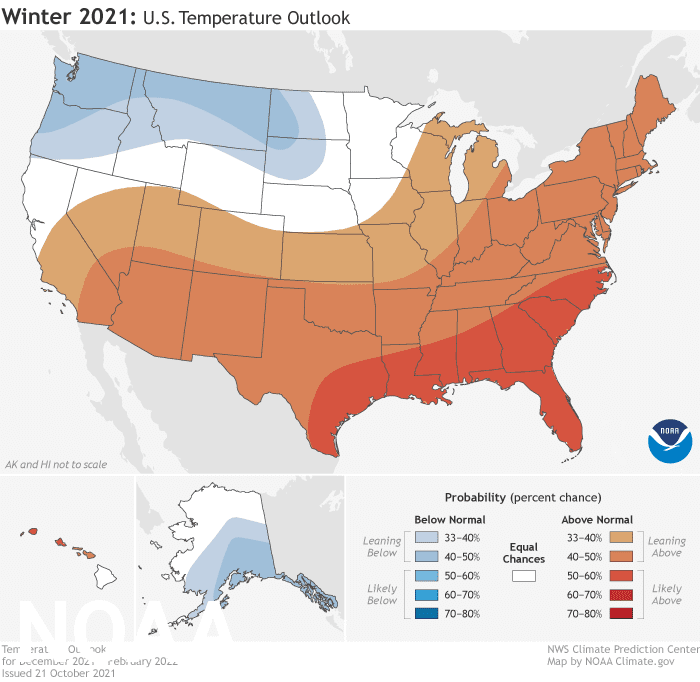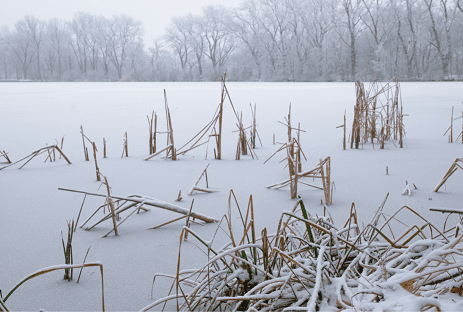Winter conditions play a role in what the lake could look like next season

According to an email I received from Indiana Climate INformer, we are now experiencing our second winter in a row with active La Niña conditions in the equatorial Pacific. The main wintertime climate patterns in the Midwest during a La Niña can be associated with a mild start to the winter season that progresses into more typical winter-like weather and snowfall later in the season. So far December seems to be following that script.
The latest climate outlook for January 2022 gives Indiana equal chances of below-, near-, and above-normal temperatures with a slightly increased chance of above-normal precipitation. How’s that for an “expect anything” weather forecast?

Dead Fish
When ice forms across the surface of the lake, it seals off the water from atmospheric oxygen exchange and blocks out much of the light that is necessary for plants and phytoplankton to produce oxygen. Throughout the winter, oxygen levels in the lake slowly decline. If the lake stays frozen for too long, oxygen levels can become low enough to kill fish, which is one explanation for the dead fish we see each spring.
Evaporation
A hard winter, with above normal snowfall and cold temperatures creating complete ice cover will cause lake levels to rise due to decreased evaporation. Mild winters with higher temperatures and, subsequently, less ice cover results in more evaporation and decreased lake levels.
Influences on Great Lakes Water Levels – Tip of the Mitt Watershed Council
Plant Growth
According to an article from ScienceDaily.com, “in years where there isn’t ice cover or when the ice melts earlier, there have been observations that water temperatures are warmer in the summer, there are increased rates of primary production, plant growth, as well as an increased presence of algal blooms, some of which may be toxic.”
If we are looking, we may be getting clues this winter as to what we can expect to see next summer!
What good is the warmth of summer without the cold of winter to give it sweetness.
John Steinbeck

Hi, I’m Debbie Palmer. I received a BS in Horticulture from Purdue University. Here at LMEF, I am responsible for outreach presentations, monitoring the lake and it’s wetlands, project manager for restoration and research projects, and act as a community resource for all things related to the well-being of Lake Maxinkuckee and its surrounding watershed. I completed Indiana Watershed Leadership Academy, volunteer with the Indiana Clean Lakes Program, Hoosier River Watch and Marshall County Lakes and Waters and serve as a Board Member for Indiana Lakes Management Society.


Recent Comments